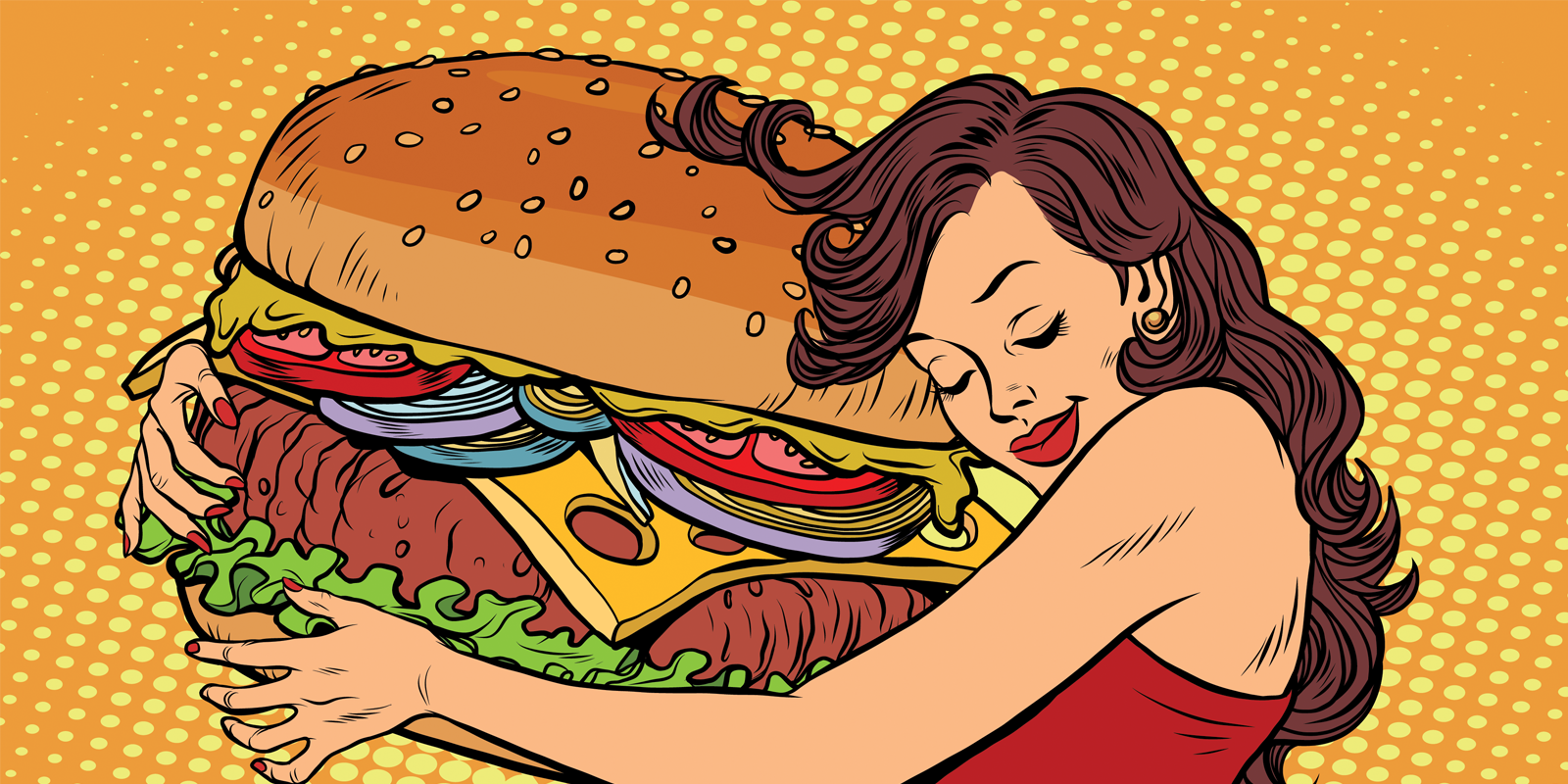Uncovering The Instinctive Truth About Money
Everybody wants more money. Rich people want more money. Poor people want more money. You want more money. I want more money. No matter who is asked the question, everybody responds that they would like more money. When they are asked how much, most people, regardless of age or income, give the same answer: “Just a little bit more than I have.”
First Money Understanding

What can we conclude from this? That no matter how much money you have, you will want more. If you make $50K a year, you’ll wish you made $60K. You’ll tell yourself that if you only made $60K, everything would be perfect. Yet all the people who make $60K somehow think that if they only made $70K, everything would be perfect. So let’s just accept the fact that no matter how much we have, we’ll want more.
Why Do We Want More?
At our basic, fundamental nature, humans are desire seekers. We want things. Back in the day when we had to hunt for food, we would kill something, eat it, and then later get hungry. We’d have to kill something and eat that. But since the things we had to chase and kill were always moving, we had to follow them.
Think of two tribes of people. One tribe had a gene that said, “I have everything I need. Right here, right now. I need nothing else.” Another tribe had a gene that said, “I think over that set of yells off in the distance is the BEST hunting ground ever. This place is good, but I have an idea that place up over that distant set of hills is better.”
Who would survive the most? The people who were content with what they had wouldn’t leave until they had to. Until all the food ran out. The second tribe would always be on the move. They would be more likely to survive, since they had the gene that said, “What we have is good, but I think we can find something better.”
Replication Contest

Evolution is one of those things we all think we understand, since that word is thrown around so much, but it’s easy to get the wrong idea. For the purposes of this post, let’s call evolution what it is called by scientists, the results of a long replication contest.
Once Upon A Time
Once there was no life. Then a bolt of lightening (or aliens or something) turned whatever non-life there was Earth into life. And that life was capable of moving and replicating itself. Ever since then, the race was on. Later when people were invented, it was still, at its heart, a replication contest. And based on our two tribe example above, it seems clear that the second tribe would win.
Implications
This means that those who stayed behind didn’t make as many people as the tribe who kept wandering. Think of it this way. The tribe who stayed behind (keep in mind this is just a metaphorical mind experiment) tended to stay as one group. The tribe who kept going likely split up a bunch of times. Maybe half wanted to go this way, the other half wanted to go that way.
Current People On Earth
The current people on Earth are descended from the people who kept wanting to go and find new places. They had that gene that wasn’t content with what they had. They wanted more. Today, in our modern world, that same feeling comes across as always wanting just a little bit more money. Since money is really potential energy for the stuff that money can buy.
First Law Of Money

So based on this quick mind experiment, we can say the first law of money is that you will always want more money. Rich people want more money. Poor people want more money. You want more money. I want more money. (Hey, this sounds familiar!) This is due to our deep and ancient instincts.
Why Is Money So Hard?
So, now we know that we all want more money. Big help, right? How the heck can we GET more money? To understand that, let’s try and figure out why money seems so hard. Not just to get, but to talk about, think about and especially to worry about. Everybody’s different, and everybody’s got different skills. Once we figure out where our money worries come from, we’ll be in a better position to more effectively point our skills (present or future) in directions that will get us more money.
Where Does Money Come From?
Once upon a time there was no money. Now there’s a crap ton of it. More than a crap ton. A crap ton to the crap ton power. It happened slowly. First there was barter. People would trade stuff for other stuff. This was fine when ancient tribes were trading fish for bananas. When societies started to get big, it started to get hard to trade.
Coincidence of Wants
This is when you had a bunch of corn, for example, and you had to find somebody who not only wanted corn, but had what you wanted. This started to become problem. People started to naturally trade what they had for not what they wanted, but for stuff they knew they could trade for other stuff. This was called commodity money. This happened spontaneously and organically. This has been everything from cattle to salt to sea shells. But most of the time, whenever it was available, it was silver and gold.
Potential Tangent
We could go off on a huge tangent, and talk about how silver and gold turned into paper money and how that is going to doom us all, but let’s resist that. Right now, let’s just focus on why it seems to hard and anxiety prone to think about or ask about getting more money. Let’s stick with the idea of commodity money. Because getting commodity money is easy to think about it, and it’s an easy way to understand where our money anxieties come from.
Where To Get Commodity Money
Think about a society with no government, no central banks, no criminals or bad guys. This will make it easier. In order to get stuff, like food and maybe paying somebody to fix your leaky roof, you had to have some to exchange for whatever that was. And since we are assuming a world with commodity money (let’s just assume it’s silver for the sake of our mind experiment) that meant that if you wanted something, you had to find somebody that had it, and give them some silver in exchange for it.
Where Do I Get Silver?

If you wanted silver, this meant you had to have something that somebody else wanted, and would be willing to give YOU silver in exchange. We’ll soon see why THIS idea is at the heart of all our money worries.
How To Meet Market Demands
If you were an ancient trader, and you needed some silver, you would need to think of something somebody else wanted. Which meant you had to actually create something yourself and sell it for silver, or offer your services in exchange for silver. Maybe you were really good at picking and shucking corn, and you got paid some silver per hour for doing that. Or maybe you were the corn farmer that sold corn directly.
Must Be Able To Meet Market Demands
The idea is fairly straightforward. In order to get silver, so you could buy the stuff you wanted, you had to do something that somebody would be willing to pay you for. No human thinks about this idea without feeling a little bit anxious.
Our Biggest Fears

One of our biggest fears as humans is social rejection. The collection of instincts responsible for our social safety was crucially important in the times of hunter gatherers, and also later during times of much larger and more diverse economic activity. In both cases, the idea was the same:
“If I don’t perform adequately, I’ll get left behind.”
If you were in a tribal environment, and you didn’t carry your share of the weight, you’d literally get left behind. If you lived in a large society and couldn’t produce or do anything that anybody else thought was valuable, you wouldn’t be physically left behind, but you wouldn’t be able to get any money. This meant you either had to starve, or you had to become a beggar.
Money Fears Tied To Social Fears
At their core, all of our money fears are tied to our social fears. They are two sides of the same coin, if you’ll excuse the pun. Any time we think about getting more money, the thought of presenting ourselves (either in the form of products or services we make or help make) that other people can accept or reject is not far behind.
Nobody Likes Rejection
You ask a cute guy or girl for their number, and they reject you, it hurts. If you ask your boss for a raise, and you get rejected, it hurts. If you set up a shop in the mall and nobody comes to buy your products, it hurts. If you get a job in sales, and you ask for the sale after a lengthy presentation and they don’t buy, it hurts.
Everybody Gets Hungry

Huh? Why is food important? Our desire for food is an instinct. A compulsion that we cannot control. The desire to be accepted by others is also an instinct. The good feeling we get when we get accepted by others is an instinct, which compels us to do more of whatever it was we just did. The bad feeling we get from being rejected is also an instinct, that makes us want to not do whatever we just did.
Money Is Tough For Everybody
It’s easy to look out into the world and see all the happy rich people and think we missed the memo. That they know some secret that we don’t. This idea is absolutely false. As mentioned before, everybody wants more money. And everybody feels twinge of anxiety when they think about how they are going to get more money.
Fitness Model Mindset

Everybody gets hungry, just like everybody likes positive social attention and dislikes negative social attention. But people who make a ton of money from their physiques (body builders, fitness models, actors) don’t have nearly as tough a time avoiding food like us normal people. They’ve taken a short term desire (ice cream or cheeseburgers or whatever) and have trained their brain to ignore it by looking at a much bigger, and much longer term desire, that of their career or the massive and positive social response they’ll get.
It’s Not You – It’s Your Skills
No matter what you do to try and get more money, or think about getting more money, it’s your skills that are being accepted or rejected, not you. Or if you are selling things, it’s your product that is being accepted and rejected, not you. Now we’ll go over some important ideas that will make it much easier to think about getting more money.
The Market Is Always Evolving
There are new products, ideas, services being brought to the market. Stuff is being sold today that nobody could have predicted ten or five years ago. This means that every single day there are plenty of opportunities to make money.
Your Skills Are Not Static
If you can read this, you can learn to do new things. The idea of not being able to learn later in life is absolutely false. You can learn how to do things until the day you die. However, there is one vital component necessary for learning. And that is you must have a good reason to learn something. This is why school absolutely sucks for most people. For most of us, the only reason to learn stuff in school is so we don’t get into trouble. But as an adult, you have the best motivator in the world. The more you learn, the more things you’ll do, and the more money you’ll make.
Extend Your Time Frame
If you only focus on the next ten minutes, life can be difficult. But as we alluded to earlier, you can forego short term pleasures (which only last for a short term) in order to get much better, and much longer lasting long term games. Fitness models can avoid eating ice cream by replacing the desire for ice cream with the thought of all the positive things that comes with being a fitness model.
For example, if a particular model is getting in shape to do a cover shoot for a magazine, every time they get the urge to eat some junk food, they’ll imagine things associated with the cover shoot. The paycheck, the interviews they’ll do on TV, what the cover might look like, etc. You can do the same.
All Things Are Skills
This means that everything you can’t do, but want to do, is a skill. Even the concept of foregoing short term pleasures for better long term pleasures is a skill. The more you do any skill, the better you get. If you’re nowhere near being in fitness model shape (like most of us) then imagining being a cover model wouldn’t work. But you can try shorter term ideas as well. The trick is to think of something you would like to be able to do, and imagine a positive benefit a few days out beyond the present. Train your brain to focus on the positive benefit to give you the motivation to do (or not do) the short term thing.
Learning Feels Good

When you start to learn new things, it feels good. Knowing how to do something when before it was frustrating and confusing is a good feeling. If you combine this good feeling with the idea of learning more so you can make more money, that’s an even better skill.
Social Pressure Is Transferable
What does this mean? It means by doing things that put you in the social spotlight, will build up your ability to withstand any other kind of social pressure. It means that giving speeches at Toastmasters will help you be more confident in job interviews. It means that publishing articles online will make it easier to send out resumes. It means that applying for any job will make it easy to apply for any other job. It means asking your boss for any favors will make it easier to ask for a raise when it’s time.
Social Skills Are Skills

Anything related to social skills, (e.g. giving speeches, talking to strangers, confidently presenting your best self in a job interview) will help all other social skills. And like skills, you can learn social skills by starting very small, and slowly working your way up. The stronger your social skills are, the less money anxiety you’ll have. Remember, these are two sides of the same coin.
How To Win The Money Game
Here are some summary tips to help you to start making more money, and keep making more money.
One – See It As A Game – The Only Game
Everything is a competition. No matter what you decide to sell, or what kind of job you apply for, you are going to have competition. Accept it, embrace it, and get in the game and give your best. Every single time you trip over your own feet, that’s an opportunity to learn from that one step back in preparation for the next two steps forward.
Two – The Market Is Always Evolving
The market place is always changing and evolving. This means there are new opportunities every single day. It also means if you don’t keep your skills up, you may be left behind (one of our biggest fears). Accept that to be most alive, you always should be moving forward, learning and getting better.
Three – Always Increase Your Social Skills
No matter what your job is, or what you want it to be, having stronger social skills will make it easier. The good news is you can practice and strengthen your social skills any way you like. Join a group like Toastmasters. Try to start one conversation with a stranger every day. Do something every day. Consider that exercising your social skills every day is just as important as exercising your body every day.
Four – Always Be Learning
Always be in the process of learning something new. A new hobby, a new skill, a new piece of software. Ideally this should be somewhat related to your career, either the one you have or the one you want.
Five – Practice Delayed Gratification
Try to do this in any way possible. Forego one small pleasure every day in exchange for a much bigger pleasure in the future. Even saving one dollar a week, and keeping it in an envelop will help. Watching that small stack of money get bigger and bigger will strengthen your desire to delay gratification.
Six – Embrace Your Mistakes
Our minds are hard wired to learn best from mistakes. We mess up, we feel like crap, and that feeling motivates us to learn so we don’t make that mistake again. So long as your mistakes are small and easy to recover from, you’ll be fine.
Seven – Embrace The Competition
Don’t be shy about seeing somebody else applying for the same job, and secretly plan to destroy them when you give your interview. Not destroy them as in put them down, but to make yourself shine so brightly the interviewer can’t remember the other people. In any way you feel comfortable, embrace the idea of metaphorically destroying your enemies whenever possible. If you don’t destroy them, they will have no problem destroying you. Be nice to them, wish them good luck, shake their hand, look them in the eye and smile, and then deliver yourself with so much confidence they don’t stand a chance.
Further Study

We have plenty of courses and books to enhance your money skills, your learning skills, or your social skills. Check out our programs below.
Mind Persuasion Courses
Mind Persuasion Books